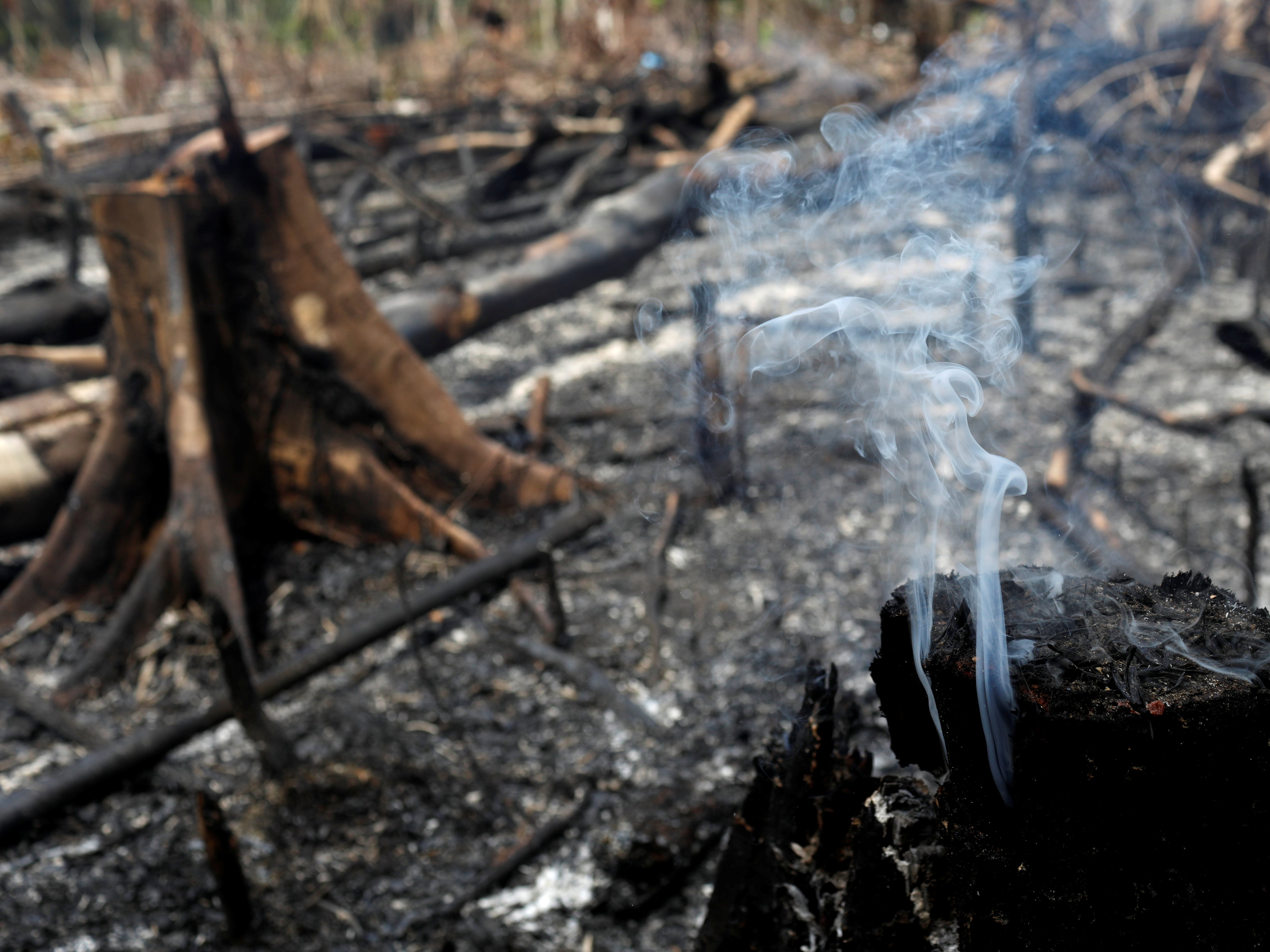- Wildfires have been blazing through the Amazon over the last few weeks, causing a loss equivalent to three football fields per minute, according to data from Brazilian satellites.
- Brazil’s National Institute for Space Research (INPE) reported an 80% increase in wildfires, with a total of 72,843 incidents this year.
- Losing this much surface area from the Amazon could make the effects of climate change “irreversible.”
- Visit Business Insider’s homepage for more stories.
The Amazon has been ravaged by man-made wildfires over the last few weeks, and it is losing the equivalent of three football fields per minute, according to data from Brazilian satellites.
In July, the world’s largest rainforest lost 519 square miles (1,345 square kilometers) of trees, setting a new record for the most deforestation that the Amazon experienced in a single month, The Guardian reported. Brazil’s National Institute for Space Research (INPE) reported an 80% increase in wildfires, with a total of 72,843 incidents this year, according to National Geographic.
Ecologist Thomas Lovejoy told the National Geographic that he believes that deforestation is to blame for the fires, which comes after the Brazil’s sitting president Jair Bolsonaro gave the OK to develop areas of untouched rainforest for mining, farming, and logging.
“This is without any question one of only two times that there have been fires like this,” Lovejoy told National Geographic. “There’s no question that it’s a consequence of the recent uptick in deforestation.”
Losing this much surface area from the Amazon could make the effects of climate change "irreversible."
"We are running a serious risk of losing a large piece of the Amazonian tropical forest," Carlos Nobre, a senior scientist for INPE, told the World Wildlife Fund. "If warming exceeds a few degrees Celsius, the process of 'savannisation' may well become irreversible."
The "lungs of the planet," as the Amazon has been commonly referred, covers approximately 2.6 million square miles (6.7 million square kilometers), according to the World Wildlife Fund. Through the process of photosynthesis, the Amazon converts 20% of the Earth's oxygen, thus storing 80 to 140 billion metric tons of carbon.
Due to deforestation and land conversion, 0.5 billion metric tons of carbon are being released into the atmosphere, accelerating the affects of global warming significantly, the WWF stated - and that figure doesn't even reflect how the wildfires are affecting carbon emissions from the rainforest.
"The effects of forest destruction in the Amazon don't stay in the Amazon," Robin Chazdon, a University of Connecticut professor emerita who studied tropical forest ecology, told NBC News. "They affect us all."
- Read more:

